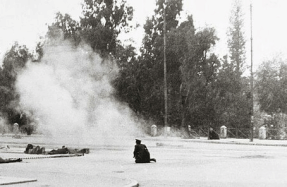

The origins of the War of the Austrian Succession (1740-48) are labyrinthine, complex and easily fill several book. Triggered by the death of Emperor Charles VI, it was essentially a conflict between two coalitions, each supporting a different potential inheritor of the emperor’s throne.
The Pragmatic Allies took their name from a proclamation issued by Charles in 1713. This Pragmatic Sanction insisted that a daughter could inherit all his titles, including that of Holy Roman Emperor, which had never previously been held by a woman. Upon his death, his daughter, Maria Theresa, was supported by the Habsburg Empire itself (often referred to as Austria), Britain, the Dutch Republic and Hanover. The Pragmatic Allies were opposed by France, Prussia and Bavaria, who wanted to break the Habsburg’s grip on Charles’ titles. Their preferred candidate was Charles Albert of Bavaria.

The first move of the war saw Prussia invade Silesia in 1740, and by 1742 Austria had accepted the loss of this territory, freeing its forces to leave Silesia and join other elements of the Pragmatic Allies for offensive action elsewhere. The shift in the deployment of power threw the French onto the defensive and they were now in a position where they had to wait for the Pragmatic Allies to make the first move rather than taking the initiative themselves.
France on the defensive
The commander of France’s forces, Marshal Adrien Maurice de Noailles, had the almost impossible task of protecting France’s ally, Bavaria, as well as French territory. He did not






